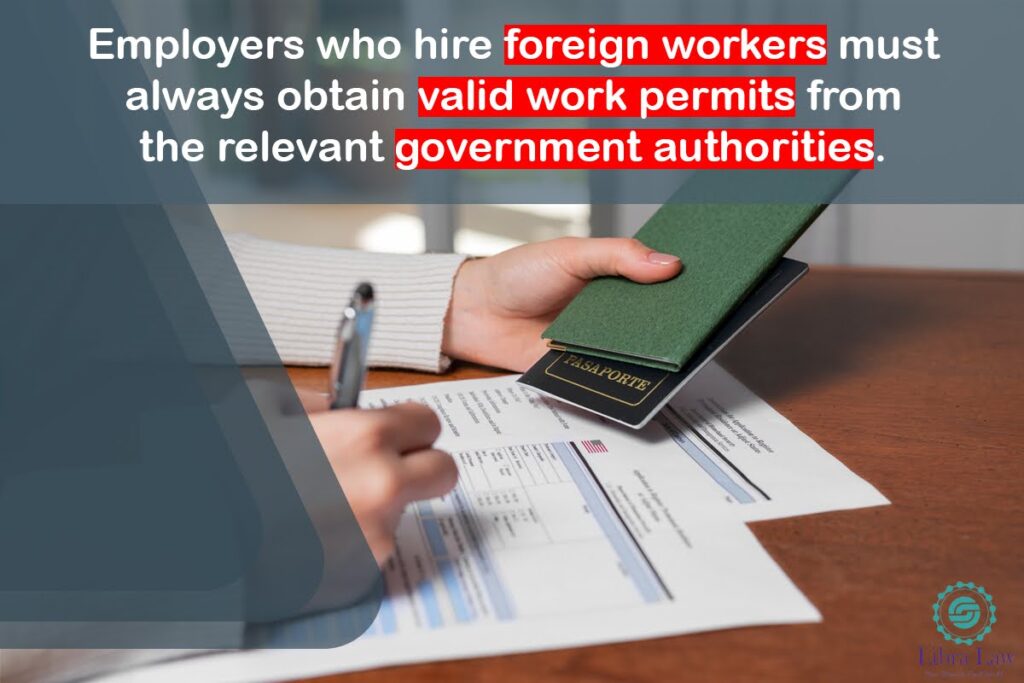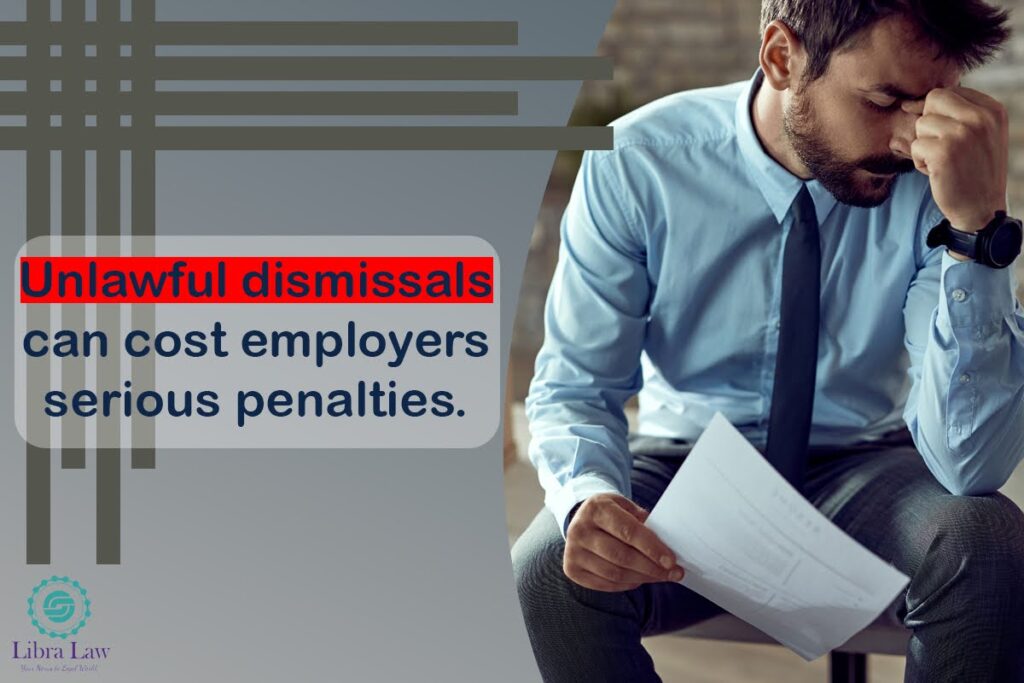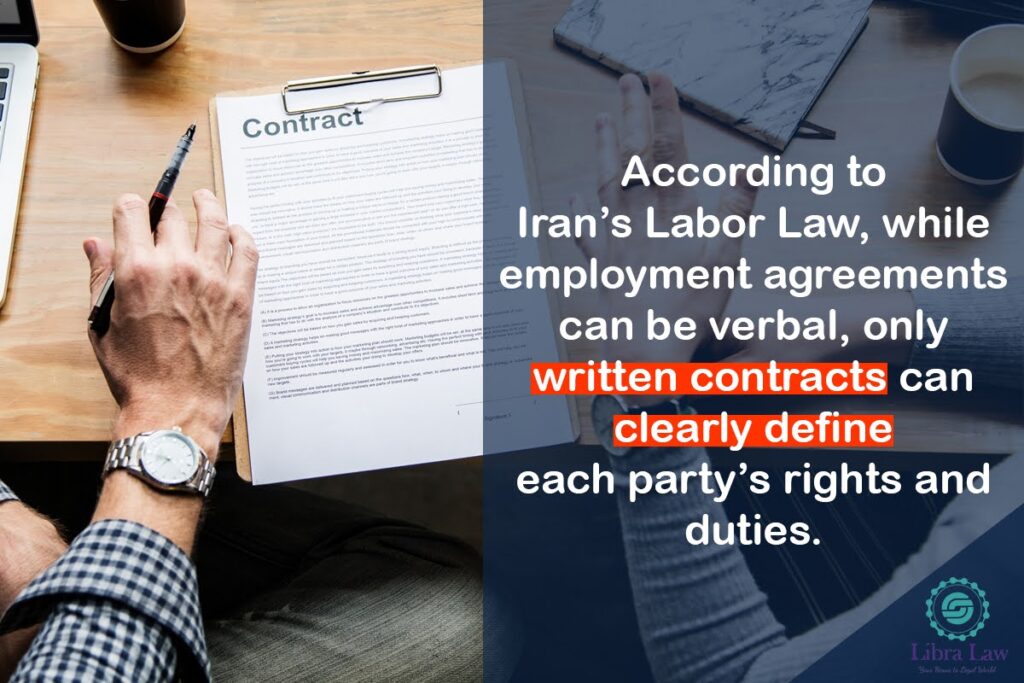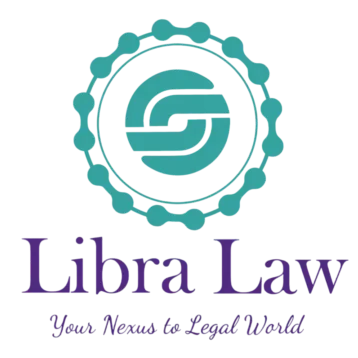As a business owner in Iran, managing the complexities of labor laws and employee benefits can be overwhelming.In this article, titled «How to Design a Legally Compliant and Competitive Pension and Employee Benefits Structure in Iran», experts at LibraLaw Legal Firm will guide you through the process of creating a benefits system that not only complies with Iranian labor laws but also attracts top talent in today’s competitive job market.
It’s essential to design a pension and benefits structure that is both legally compliant and attractive to employees, ensuring you avoid legal pitfalls while staying competitive. The key challenge lies in balancing regulatory requirements with offering a compelling benefits package that sets your company apart in a crowded market.
At LibraLaw Legal Firm, our team of experts is dedicated to helping businesses navigate these challenges, ensuring your benefits structure meets legal standards while remaining appealing to your workforce. As discussed in our article «Employment and Labor Law in Iran; Avoid Legal Mistakes Before You Face Them», understanding Iran’s labor regulations is key to avoiding compliance issues when designing compensation and benefits packages.
In the following sections, we’ll provide essential insights to help you design a legally sound and competitive compensation package tailored to your company’s needs. By reading this article, you’ll gain a clearer understanding of how to enhance your employee offerings, minimize legal risks and position your business as a leader in the market. Don’t leave your company’s legal obligations to chance; let us guide you through these complexities with confidence in a world where international trade and local laws intersect.
How Can You Design a Compliant and Competitive Pension and Employee Benefits Structure?

Designing a pension and employee benefits package that is both legally compliant and attractive to employees can be challenging. Employers in Iran are required by law to enroll all employees in the national social security insurance scheme, which covers basic benefits like pensions, healthcare and disability. However, in addition to these mandatory benefits, employers often offer additional perks, such as housing allowances, transportation subsidies and bonuses, to stay competitive and retain top talent.
Here are key considerations for designing an effective and compliant benefits structure:
- Mandatory Enrollment in the National Social Security Scheme
All employees must be enrolled in the national insurance scheme, ensuring they are covered for essential social security benefits; This is a legal obligation and failure to comply can result in significant penalties and legal issues.
- Additional Fringe Benefits
Employers can offer additional benefits, such as housing allowances, transportation costs or life insurance, to attract and retain employees. However, these benefits must be clearly outlined in the employment contract and must meet the minimum legal requirements to avoid compliance issues.
- Compliance with Legal Requirements
All additional benefits must adhere to the minimum legal standards set by Iranian labor laws. Employers need to ensure that they are offering the right benefits within the framework of the law to avoid potential legal disputes or penalties.
- Balancing Attractiveness with Financial Sustainability
It is important to strike a balance between offering an attractive benefits package and ensuring the company’s financial sustainability. While generous benefits can improve employee morale and reduce turnover, employers must ensure they can afford these benefits long-term.
- Consultation with Legal and Benefits Experts
Employers should work closely with legal experts and benefits consultants to ensure that their benefits packages are both legally sound and aligned with the needs of their employees; This professional guidance can help create a strategy that both attracts talent and minimizes legal risks.
How to Balance Competitiveness with Compliance in Designing Compensation Packages?

When designing compensation packages, it’s essential to consider various elements that ensure the package is both legally compliant and competitive in the market. Compensation packages are not only a reflection of a company’s financial capacity; but also a key tool for attracting, retaining, and motivating talent. A well-structured compensation plan balances the legal requirements set by local labor laws with the need to remain attractive in an increasingly competitive job market.
In countries like Iran, where labor laws are subject to yearly changes, it’s crucial for employers to stay informed about new regulations to avoid any legal risks. At the same time, offering a compensation package that is competitive ensures that the company can attract and retain skilled professionals while maintaining employee satisfaction and motivation.
The key factors to consider when designing these packages include the following:
- Adherence to Minimum Wage Laws
In Iran, the minimum wage is set annually by the Supreme Labor Council. Employers must ensure that the base salary in their compensation packages aligns with the minimum wage laws; This amount must be clearly outlined in employment contracts to stay compliant with legal requirements.
- Clarity in Employment Contracts
As discussed in our article «Your Rights in Employment Contracts; What Should Be Included in Your Job Agreement?», outlining all elements clearly in writing is key to avoiding future legal disputes. All components of the compensation package, including the base salary, bonuses and performance-based incentives, should be clearly defined in employment contracts; This transparency not only helps prevent legal issues but also builds trust between employees and the employer.
- Compliance with Legal Benefits and Incentives
Certain benefits and incentives, such as insurance, overtime pay and other allowances, must be provided in accordance with specific legal regulations; These incentives not only serve as tools to motivate employees but also need to comply with labor law to avoid legal complications.
- Balancing Competitiveness with Legal Standards
One of the main challenges in designing compensation packages is balancing the attractiveness of the packages for talent acquisition and retention with legal compliance; This requires utilizing performance bonuses and additional benefits that are both legally compliant and motivational for employees.
- Market Conditions and Competitor Practices
Compensation packages should be designed considering the current market conditions and competitor practices. If an organization fails to offer competitive compensation, it may struggle to attract or retain top talent; This requires continuous market data analysis to ensure the compensation package is both legally sound and appealing in the marketplace.
- Regular Review and Updates of Compensation Packages
To maintain competitiveness and legal compliance, compensation packages should be reviewed and updated regularly; This is particularly important in response to economic shifts or changes in government policies, such as changes in the minimum wage or new labor laws.
- Offering a Range of Performance-Based Rewards and Incentives
In addition to base salary, offering performance-based rewards, non-monetary benefits, such as professional training or career advancement opportunities, and other perks can significantly motivate and retain employees; These incentives should be designed within the legal framework and aligned with company goals.
- Financial Management and Organizational Budgeting
Designing compensation packages must align with the organization’s financial situation. A thorough analysis of the company’s financial health is essential to determine the amount and type of rewards and benefits that can be offered. Implementing a sustainable financial plan that is both legally compliant and competitive is vital for long-term success.

What Legal Frameworks Should Employers Follow When Hiring and Terminating Employees in Iran?
When it comes to hiring and terminating employees, businesses must carefully navigate the legal frameworks set forth by local labor laws. In Iran, these regulations are designed to protect both employees and employers, ensuring fairness in the hiring process and safeguarding employees’ rights during termination. Employers need to prioritize compliance to avoid legal disputes, minimize risks and maintain a positive work environment.
Below are the key legal considerations to keep in mind for both hiring and termination:
- Prioritizing Iranian Nationals in Hiring
Under Iranian labor laws, employers are generally required to prioritize the hiring of Iranian nationals over foreign workers; This policy aims to promote local employment and support the national workforce. However, if an employer is unable to find candidates with the necessary expertise or skills within the local market, hiring a foreign worker may be justified. In this case, the employer must provide a valid explanation for the shortage of domestic expertise and obtain the necessary work permits; This ensures that the hiring process aligns with legal requirements and prevents unauthorized employment of foreign nationals.
- Securing Valid Work Permits for Foreign Employees
If a foreign worker is hired, it’s essential for the employer to secure a valid work permit from the relevant authorities. The employer must justify the decision by demonstrating that no qualified Iranian candidates are available for the role. Without proper work permits, employing foreign workers can lead to legal and financial consequences, including penalties or fines. Proper documentation and following the necessary legal steps are critical to ensuring compliance with labor laws and preventing potential issues with immigration authorities.

- Legal Grounds for Employee Termination
Terminations must always be based on valid legal grounds. Iranian labor law specifies a range of legitimate reasons for terminating an employee, such as misconduct, poor performance or organizational changes (e.g., downsizing). Employers cannot terminate an employee without a justifiable reason. It’s important to clearly document the reason for termination, as failure to do so can result in legal disputes, claims of wrongful dismissal, or reputational damage to the company.
- Following Due Process in Termination
Due process is a cornerstone of fair termination practices. According to Iranian labor law, employers must follow a structured process when terminating an employee; This includes issuing written warnings and allowing the employee an opportunity to address any concerns or improve their performance. For misconduct-related terminations, written warnings must be provided in advance, and employers must follow the correct procedural steps to ensure the termination is lawful and justified.
- Approval from the Dispute Resolution Board
Before terminating an employee for misconduct, Iranian law mandates that employers seek approval from the Dispute Resolution Board; This step is critical to ensuring that the termination is fair, lawful and in accordance with the established legal process. The board reviews the case, examines the evidence and determines whether the termination is justified; This requirement protects both the employer and the employee by ensuring that terminations are conducted fairly and within the bounds of the law.
- Importance of Proper Documentation
Accurate and thorough documentation is essential throughout the hiring and termination processes. Employers should keep detailed records of all relevant steps, including job applications, interviews, work permits, performance reviews, warnings and communication related to terminations. Proper documentation not only ensures compliance with the law, but also protects the company in case of disputes. In the event of a legal challenge, having comprehensive records can serve as evidence that the company followed the proper legal procedures.

- Minimizing Legal Risks and Adopting Best Practices
To minimize potential legal risks, employers should establish clear, consistent policies for hiring and termination; These policies should be communicated to all HR personnel and managers, ensuring that they understand the legal requirements and follow established protocols. Regular training on labor laws and best practices can help ensure that the company remains compliant and avoids common pitfalls. By staying proactive, employers can prevent costly mistakes and create a work environment that adheres to the law while fostering trust and respect.
- Safeguarding Employee Rights During Termination
During the termination process, it’s crucial for employers to respect the rights of employees. This includes providing appropriate severance pay (if applicable), adhering to the required notice periods and ensuring the employee has access to dispute resolution mechanisms. Employees should also be informed of their right to appeal or challenge the termination. By safeguarding employee rights, employers not only comply with labor laws, but also enhance their reputation as fair and responsible employers, which can have long-term positive effects on employee morale and company culture.
These key points provide a comprehensive overview of the essential legal considerations in hiring and termination. By adhering to these principles, employers can mitigate risks, ensure fairness and maintain compliance with Iranian labor laws while fostering a positive, transparent and legally sound work environment.
Need help finding trusted legal professionals to represent your company in disputes? Explore our expert lawyer and arbitrator selection services here.
Are You Meeting Your Legal Obligations for Retirement and Workplace Injury Compensation in Iran?
Employers in Iran must navigate a range of legal responsibilities related to employee retirement benefits and workplace injury compensation. Ensuring compliance with these obligations is essential for protecting both employees and the organization from financial and legal risks. These responsibilities include the following:

- Social Security Contributions
Employers are required to contribute 23% of each employee’s monthly wage to the Social Security Organization; This contribution supports pensions, medical coverage, disability, and other social insurance benefits. Late or incomplete payments can result in fines and legal complications; so employers should implement reliable payroll and record-keeping systems.
- Retirement Eligibility and Planning
Retirement in Iran is typically available:
- For men after 30 years of service or at age 60 (whichever comes first);
- For women, eligibility typically begins at 20 to 25 years of service, depending on job type and applicable exemptions.
Employers must assist employees in understanding and preparing for retirement and should coordinate with the Social Security Organization to ensure smooth processing of benefits.
- Liability for Workplace Injuries
In the case of a work-related accident, the employer is generally responsible for all related compensation — including treatment costs, wage replacement and permanent injury benefits — unless the injury was clearly caused by the employee’s negligence. Employers should proactively enforce safety standards and maintain detailed records of incidents to defend against potential claims.
- Implementing Compliant Policies and Procedures
To reduce legal exposure and promote workplace safety, employers should develop:
- Clear retirement policies in line with national laws;
- Safety protocols tailored to their operations;
- Structured incident response and reporting systems.

We support organizations in designing these policies, ensuring they are practical, enforceable and aligned with legal expectations.
How Can Employers in Iran Avoid Legal Liabilities for Workplace Safety and Health Compliance?
Maintaining a safe and healthy workplace is not just a legal obligation in Iran; it is a strategic imperative. Non-compliance with occupational safety and health standards can expose employers to serious legal liabilities, financial penalties, operational disruptions and reputational damage. As part of a responsible management approach, businesses must proactively align their operations with Iran’s labor regulations to safeguard both their workforce and their organization.
The key obligations and actions for employers include the following:
- Adherence to Occupational Safety Standards
Iranian labor law mandates that all employers comply with defined health and safety standards; This includes conducting risk assessments, identifying workplace hazards, implementing control measures and updating safety procedures regularly. These measures apply across all industries and are especially critical in high-risk sectors such as construction, manufacturing, and chemical handling.
- Provision and Use of Protective Equipment
Employers must ensure that employees are provided with appropriate personal protective equipment, such as helmets, gloves, safety glasses and specialized clothing, depending on the nature of the job. It is not enough to supply equipment; employers are also responsible for ensuring that workers are trained in how to use it properly and that the equipment is maintained and replaced as needed.
- Employee Training and Awareness
Safety training must be conducted regularly to ensure that employees are aware of potential hazards, understand safety protocols and know how to respond to emergencies. This includes training on fire safety, first aid, machinery operation, chemical handling and other job-specific risks. Maintaining records of training sessions is essential for both legal compliance and performance monitoring.

- Maintaining Safe Working Conditions
Workplaces must be kept clean, well-ventilated, adequately lit and free of unnecessary hazards. Emergency exits, firefighting equipment and first aid kits must be available and easily accessible. Regular safety inspections and maintenance routines are essential to identifying risks early and correcting them before incidents occur.
- Government Inspections and Enforcement
The Ministry of Labor and Social Affairs conducts both scheduled and surprise inspections to monitor compliance. In cases of non-compliance, authorities can issue warnings, impose fines or even shut down part or all of the business operations. Employers should treat these inspections as opportunities to validate their internal processes and not just as regulatory obligations.
- Legal Audits and Preventive Strategies
We support organizations by conducting in-depth legal audits of their health and safety practices. Our audits identify potential areas of non-compliance and provide clear, actionable recommendations. We also help develop preventive strategies such as safety handbooks, compliance checklists, reporting systems for incidents or near-misses, and customized training plans; These measures not only reduce liability but also improve overall operational efficiency and employee morale.
By embedding safety and compliance into daily operations, employers can create a safer work environment, reduce legal and financial risks and demonstrate their commitment to employee well-being. Proactive compliance is always more effective and less costly than reactive correction after a violation occurs.
Are You Prepared to Handle an Unfair Dismissal Claim in Iran?
Unfair dismissal is a serious issue in the workplace and understanding your rights and how to assert them is crucial for both employees and employers. Dismissals that occur without lawful cause — particularly in sensitive situations such as maternity leave, union activity or whistleblowing — are not only unethical but also prohibited by law; These actions are considered discriminatory and can result in severe legal and financial consequences for the employer. Therefore, both parties need to understand their rights, obligations and available legal remedies.

The key aspects to consider are as follows:
- Legal Protections Against Unfair Dismissal
Employees in Iran are protected from unfair dismissal by the Labor Law. Certain situations, like maternity leave, union involvement or reporting misconduct (whistleblowing) are protected under these laws. If an employee is dismissed under any of these circumstances, it is considered unlawful and can lead to serious consequences for the employer; For example, maternity leave cannot be a reason for dismissal, and employees who report illegal activities (whistleblowers) should not face retaliation.
Employers must ensure that terminations are conducted for legitimate, legally-supported reasons and that all procedures are followed in accordance with national labor regulations. Failing to do so can expose them to significant legal risk.
- Filing Complaints and Legal Recourse
Employees who believe they have been unfairly dismissed can file complaints with the Labor Board or other relevant legal authorities. In these cases, employees have the right to seek reinstatement to their former position or in some situations, compensation for the loss of income and damages caused by the dismissal.
The complaint process typically involves presenting evidence to support the claim, such as correspondence, witness testimony or documentation of the circumstances leading up to the dismissal. Employees should be aware that they need to act quickly, as there are often legal time limits for filing such complaints.
- How Employers Can Protect Themselves
For employers, it’s crucial to follow the proper procedures when terminating an employee, especially in situations where dismissal could be perceived as discriminatory or retaliatory. Employers should:
- Document the reasons for dismissal thoroughly;
- Provide clear warnings or corrective actions before resorting to termination;
- Consult legal counsel before making any decisions related to dismissals that may involve protected activities;
- Ensure that any termination is based on performance issues or other legitimate grounds that can be clearly substantiated.

By following these practices, employers can avoid potential claims of unfair dismissal and ensure that they are complying with labor laws.
Why Is Precision Crucial in Drafting Employment Contracts?
In accordance with Article 7 of Iran’s Labor Law, employment contracts can either be verbal or written. However, it is crucial to understand that only written contracts can effectively and reliably define the terms and obligations of both parties involved in the employment relationship. A carefully drafted employment contract serves as a cornerstone for clarity, preventing disputes and ensuring a smooth working arrangement.
A well-drafted contract is not just a formality; but an essential document that should address various key elements to ensure legal compliance and safeguard the rights of both employer and employee. These include, but are not limited to:
- Probation Periods: As outlined in Article 11 of Iran’s Labor Law, the maximum probationary period is one month for laborers and three months for specialists; This period serves as an opportunity for both parties to evaluate the fit of the employment arrangement.
- Salary and Benefits: Clear terms regarding compensation, including salary, bonuses and any other financial benefits are critical to avoid misunderstandings. A precise breakdown of payment schedules (monthly, weekly, etc.) ensures both parties are on the same page.
- Working Hours and Location: The contract should define the expected working hours, including breaks, overtime compensation and the workplace location. Ambiguity in these areas can lead to unnecessary conflicts regarding work expectations.
- Termination Clauses: One of the most important sections in any employment contract, termination clauses specify the grounds under which the contract may be terminated by either party and the notice period required; This can prevent unnecessary legal battles or disputes when either party seeks to end the employment relationship.

- Non-Compete and Confidentiality Provisions: While not always mandatory, including clauses such as non-compete agreements and confidentiality terms can be beneficial to protect sensitive business information and ensure that former employees do not engage in activities detrimental to the employer’s interests after their contract ends.
For a broader overview of the legal principles that govern how these elements are interpreted and enforced, refer to our article «Business Contracts in Iran; Strategies to Protect Your Interests».
Our firm specializes in drafting clear, enforceable contracts that not only reflect the nuances of Iranian labor laws, but also protect your business and employees effectively. By ensuring comprehensive legal compliance, we help mitigate potential risks, providing both employers and employees with peace of mind. Trust us to create an employment agreement that fosters a healthy, legally sound and productive working environment.
Designing a legally compliant and competitive pension and employee benefits structure requires careful attention to detail and an in-depth understanding of local labor laws and regulations. Given the complexity of these requirements and the potential legal risks involved, consulting with legal experts is crucial for ensuring both compliance and competitiveness.
Consultation with specialized legal experts in this field is essential to navigate these complexities effectively. If you need assistance or legal advice in this area, the legal experts at Libralaw Legal Firm, with their expertise and experience in this field, are ready to assist you. Feel free to contact us for any support or guidance you may require.


